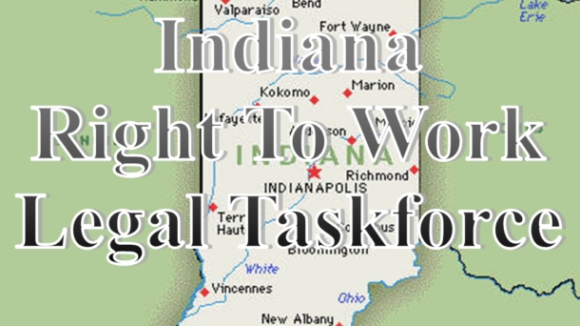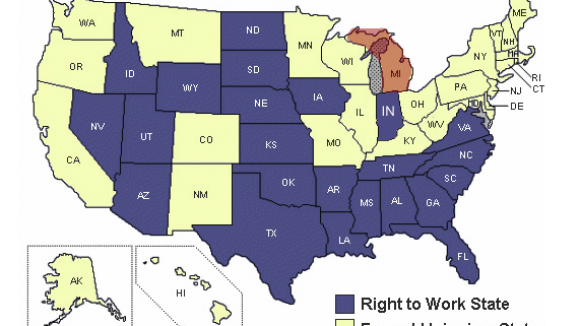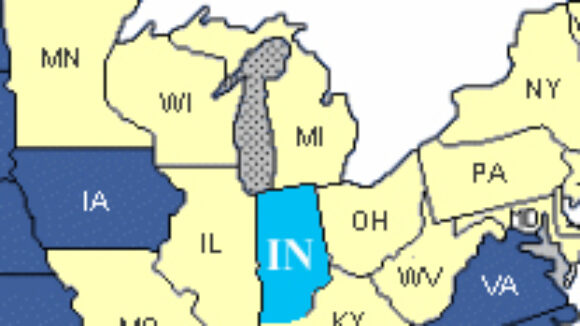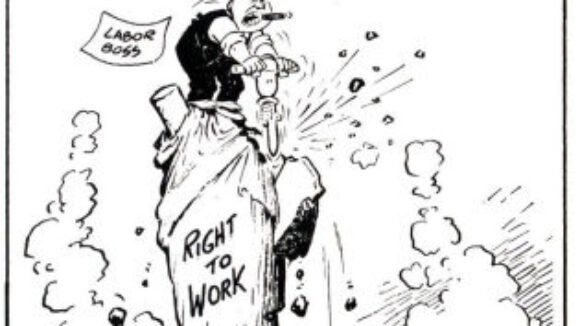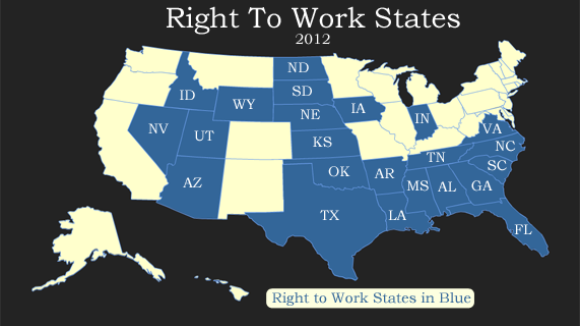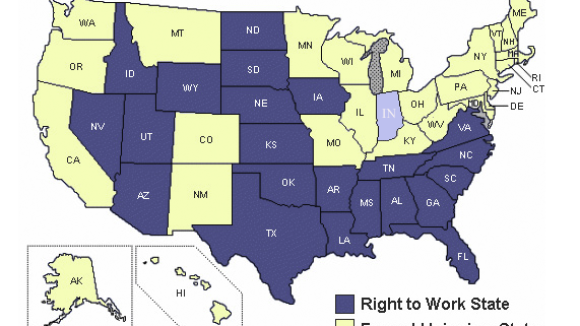Indiana Passes Right To Work -- National Right to Work Committee Statement
Indianapolis, Indiana – Today, Mark Mix, President of the 2.6 million-member National Right to Work Committee, praised the Indiana House and Senate for passage of the Indiana Right to Work Law.
Mr. Mix said, “This is a great day for Indiana’s workers and taxpayers.
“After a ten-year struggle involving hundreds of thousands of mobilized Hoosiers, Indiana will finally be able to enjoy all the benefits of a Right to Work law,” said Mr. Mix.
“Today, the Indiana Senate passed the Right to Work Bill by a vote of 28 to 22. The bill has already passed the House, so it now goes straight to Governor Daniels, who has vowed to sign it, making Indiana America’s 23rd Right to Work state,” continued Mix.
Mr. Mix continued, “The Right to Work Law will free nearly 200,000 Hoosiers who have been forced to pay tribute to a union boss for the privilege of getting up everyday and going to work so they can provide for their families.”
Proponents of the bill expect that passage of the Right to Work law will provide significant economic benefits for Indiana and Indiana workers.
For the past decade, non-agricultural employment in Right to Work states grew twice as fast compared to that in non-Right to Work states like Indiana, according to data from the Department of Labor.
“On the job front,” said Mr. Mix, “virtually every site selection consultant on record has testified that as many as half of their clients will not even consider expanding or relocating to non-Right to Work states.”
Governor Daniels experienced this problem firsthand, reporting recently that when Volkswagen was looking to build a production facility in America, he was unable to get the company to even return his phone calls.
Volkswagen ended up choosing to open its new facility in the Right to Work state of Tennessee.
Today’s action makes Indiana the first Right to Work state in the Manufacturing Belt, and supporters say it will give Hoosiers a significant advantage over all of its neighbors and the rest of the 27 non-Right to Work states.
“Besides enjoying an influx of new jobs, Right to Work states also enjoy higher personal income,” said Mr. Mix.
In particular, Mr. Mix drew attention to a study by Dr. Barry Poulson, a past president of the North American Economics and Finance Association and also a professor of economics at the University of Colorado, who compared household incomes in 133 metropolitan areas in Right to Work states with those of 158 metropolitan areas in non-Right to Work states.
“Among other results, he found that the average real income for households in Right to Work state metro areas, when all else was equal, was $4,258 more than non-Right to Work state metro areas,” said Mr. Mix.
